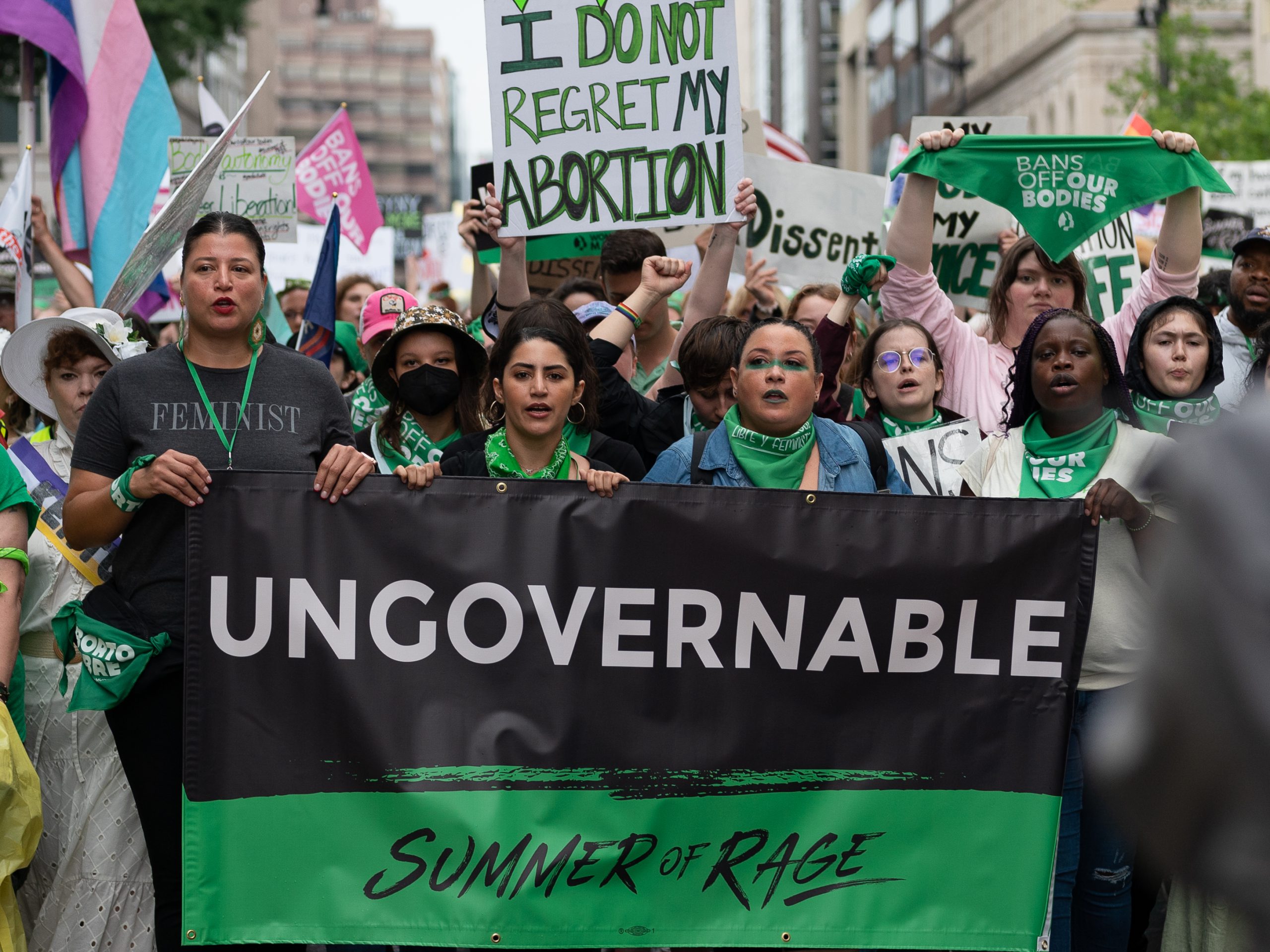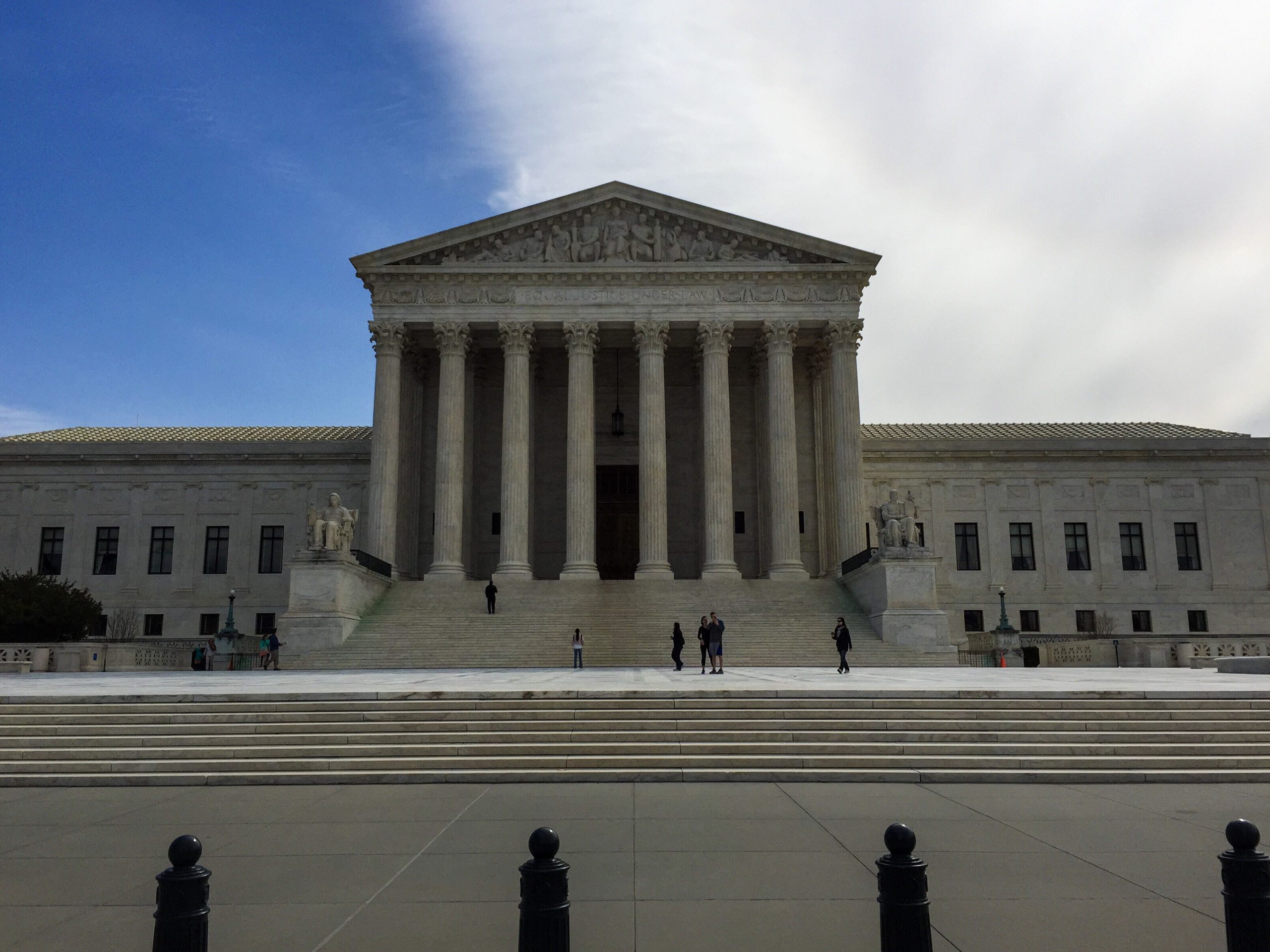Indianz.Com > News > Mother Jones: ‘We’ve been under these genocidal policies for 500 years’

Abortion Was Already Inaccessible on Reservation Land. Dobbs Made Things Worse.
Federal and state abortion restrictions have been interfering with tribal sovereignty for years.
Monday, August 15, 2022
Mother Jones
Since the Supreme Court decision overturning Roe v. Wade in June, millions of people have faced new barriers to abortion access: increased wait times, longer distances to travel, and in many cases, an inability to access the procedure altogether. But for many Native people, especially those living on reservation land, these kinds of obstacles feel especially familiar.
“It is sad to say that we’re kind of used to these types of policies being passed and implemented,” says Krystal Curley, who is Diné and the executive director of Indigenous Lifeways, an Indigenous health and social justice group. “Now it’s the whole US that’s going to have to experience what we’ve been experiencing…and it’s traumatic.”
Native American tribes are sovereign nations that have a government-to-government relationship with the United States. Tribes have the right to make many laws on their land and for their citizens—and in theory, that right applies to making decisions about health care, including abortion. But in practice, decades of state and federal laws have limited tribal nations’ ability to provide reproductive health services, leaving Native people with disproportionate barriers to abortion access. In a post-Roe world, the obstacles to abortion access on tribal land have only gotten greater. For advocates like Curley, the ruling feels like just the latest escalation in a centuries-long attack on bodily and tribal autonomy.
“We’ve been under these genocidal policies for 500 years,” Curley says, pointing to a legacy of violence that began with the use of rape as a weapon against Native women during colonization. Since then, federal and state governments have spent decades trying to control Native people’s decisions about their families and reproductive health—from forcibly removing Indigenous children from their families to the Indian Health Service’s forced sterilization of Native women in the 1970s.
“America has always been after our natural resources, and one of the ways that you go about doing that is to target Native women, because we bring forth the next generation,” says Charon Asetoyer, executive director of the Native American Women’s Health Education Resource Center, who is Comanche. “If you can sterilize or control our fertility, you can control our population. The agenda is the same: harvest our natural resources.”
But in reality, no tribes have announced plans to offer “abortion on demand.” A complex web of criminal, civil, and state laws would make that an “uphill battle,” says Alex Pearl, a tribal law professor with the University of Oklahoma and enrolled member of the Chickasaw Nation. Suppose that a tribe or a Planned Parenthood managed to set up an abortion clinic on reservation land without using federal funds. Under current federal law, states likely wouldn’t be able to prosecute a Native abortion provider who performed an abortion on a Native patient, Pearl says. But fewer than 0.5 percent of registered physicians in the United States are Native American. And the situation becomes more complicated when non-Native doctors and patients are involved. That’s partly because, just days after the Dobbs decision, the Supreme Court struck a blow to tribal sovereignty with its ruling in Oklahoma v. Castro-Huerta. The court held that states have the authority to prosecute non-Native people for committing crimes against Native people on tribal land. That means that, in a state where abortion is criminalized, any non-Native doctor could likely be prosecuted for performing an abortion on a reservation. Beyond that, it’s possible that states like Oklahoma could revoke doctors’ licenses for performing abortions, says Aila Hoss, a professor of health and federal Indian law at the Indiana University. Oklahoma and many other states can revoke state licenses for “unethical and unprofessional conduct,” Hoss says, including for violating criminal laws—even if the doctor isn’t convicted. Even if tribes were to overcome the legal hurdles, it would be a mistake to take it for granted that they would want to set up clinics on their land, Pearl says. “Tribal communities are not monoliths,” he says. “There are cultural norms, religious views, that are not always going to track the American left-right, conservative-liberal political dichotomy.” Native tribes hold varying beliefs about when life begins. For some, a combination of tribal traditions and the influence of Christianity lead to the belief that life begins closer to conception. At the same time, abortion care has been a practice in many nations since time immemorial. As a Diné woman, Curley says, she grew up learning that bodily autonomy was to be respected, and that she alone should decide when to give birth. If someone needed to terminate a pregnancy, they did so in a holistic ceremony that included care before and after the abortion. Despite the current threats to abortion access, the Native activists Mother Jones spoke with say they’re hopeful that more comprehensive reproductive care will eventually be available on tribal lands. Activists are lobbying to change laws while also revitalizing traditional maternal medical care. But “those are conversations for us as Indigenous people to have among each other without the influence or the feeling of urgency from white feminists,” says Lorenzo of Indigenous Women Rising. “And our timeline is not the same as white people. We have so much more to consider around our culture, our language, our tradition.”While we are sovereign Native Nations the onus of your reproductive care and choices is not on us.
— Frances *Deadly SoverAuntie* Danger (@FrancesMFDanger) June 24, 2022
1) Do not ask us to undo what your colonialism has done to you when you've sat idly by as it works every day to destroy us.
This story originally appeared on Mother Jones on August 12, 2022. It is republished here with permission. Founded in 1976, Mother Jones is America’s longest-established, reader-supported investigative news organization. It is based in San Francisco, with bureaus in Washington, DC, and New York.
Related Stories
Search
Filed Under
Tags
More Headlines
Native America Calling: The graduation milestone
Native America Calling: The imbalance of parole and probation
Native America Calling:Drive to dismantle college inclusion adds another barrier for Native students
NAFOA: 5 Things You Need to Know this Week
Chuck Hoskin: Cherokee Nation continues to offer opportunities to all
Native America Calling: Illinois’ first Native reservation
AUDIO: The Alyce Spotted Bear and Walter Soboleff Commission’s Report on Native Children
VIDEO: The Alyce Spotted Bear and Walter Soboleff Commission’s Report on Native Children
Native America Calling: Charting the future of Native jazz
Native America Calling: Miss Indian World Kassie John
AUDIO: American Indian & Alaska Native Public Witness Hearing: Day 1, Afternoon Session
AUDIO: American Indian & Alaska Native Public Witness Hearing: Day 1, Morning Session
Senate Committee on Indian Affairs hosts discussion on Native children
Native America Calling: Is the sky the limit for tribal sovereignty?
Native America Calling: The economic strength — and responsibilities — of tribal wealth
More Headlines
Native America Calling: The imbalance of parole and probation
Native America Calling:Drive to dismantle college inclusion adds another barrier for Native students
NAFOA: 5 Things You Need to Know this Week
Chuck Hoskin: Cherokee Nation continues to offer opportunities to all
Native America Calling: Illinois’ first Native reservation
AUDIO: The Alyce Spotted Bear and Walter Soboleff Commission’s Report on Native Children
VIDEO: The Alyce Spotted Bear and Walter Soboleff Commission’s Report on Native Children
Native America Calling: Charting the future of Native jazz
Native America Calling: Miss Indian World Kassie John
AUDIO: American Indian & Alaska Native Public Witness Hearing: Day 1, Afternoon Session
AUDIO: American Indian & Alaska Native Public Witness Hearing: Day 1, Morning Session
Senate Committee on Indian Affairs hosts discussion on Native children
Native America Calling: Is the sky the limit for tribal sovereignty?
Native America Calling: The economic strength — and responsibilities — of tribal wealth
More Headlines
